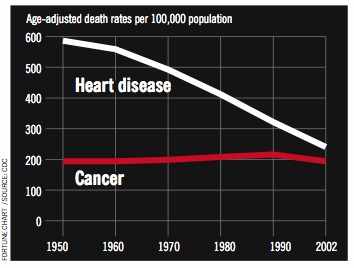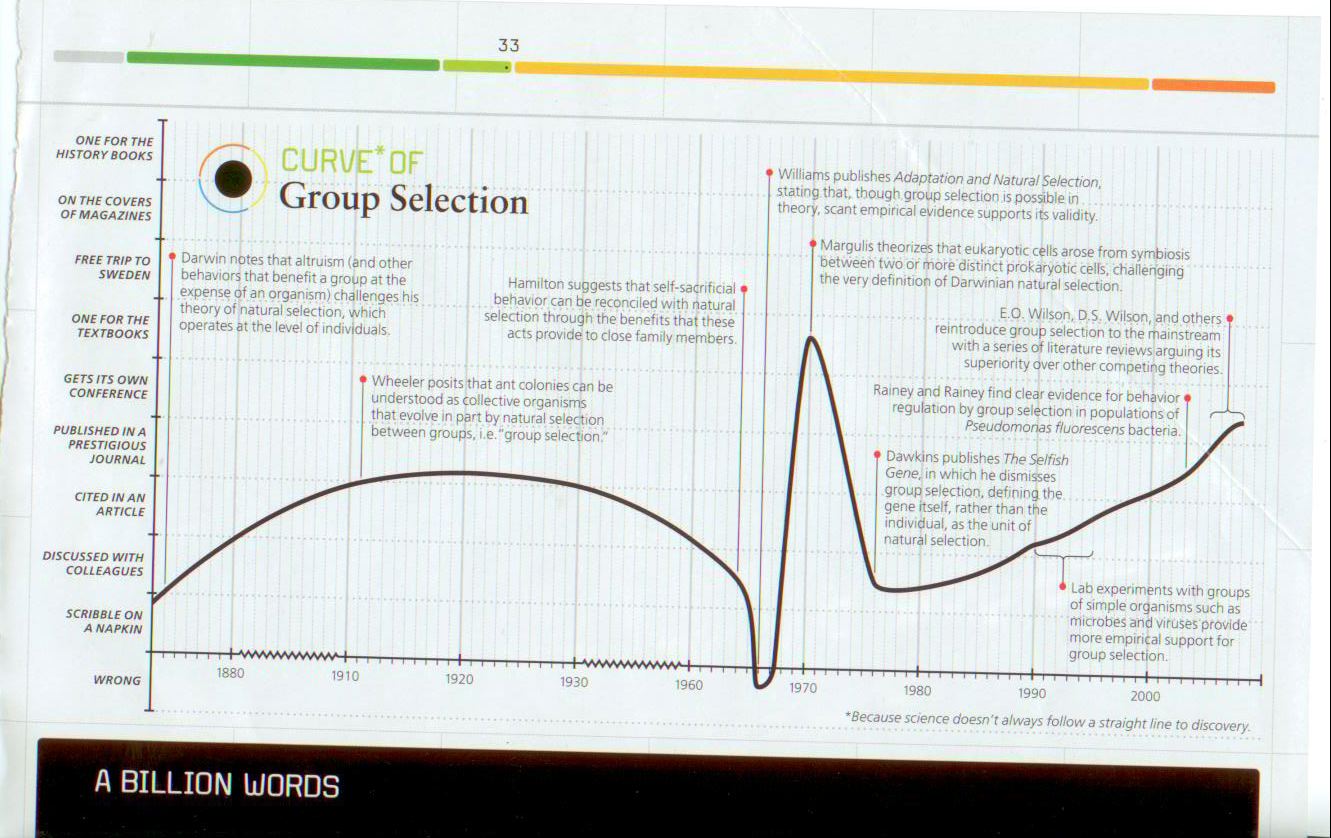Science
The Nature of Innovation
One of my favorite talks of all time is Ken Robinson’s on how children are born naturally innovative and the process of schooling and growing up in our society beats it out of them by the time they are adults. More recently, Elizabeth Gilbert (of Eat Pray Love fame) opened some eyes with this talk on how we think of individual creativity and where it comes from.…
Crohn's Disease
Debbie Maier asks us on the Upcoming Topics page to address Crohn’s Disease.
I don’t know too much about it except that it’s an autoimmune disease and has a complex, multi-causal etiology and pathology. In my reading on autoimmune diseases in general there seems to be a direct link between latitude an incidence. Specifically, the farther from the equator you live the more likely you are to get Crohn’s, Type 1 diabetes, rheumatoid arthritis, and so on.…
Health and Fitness Q&A with Kevin
Whenever I have a question about health matters that is too complex for an MD or academic researcher to get right, I ask Kevin. Nobody I know has a better combination of broad-based current knowledge of the primary literature, plus a whole-system view and understanding of compex dynamics, plus the practical will and experience in living by (and updating) his conclusions.
Here are some questions I had for Kevin recently and his answers.
Rafe: Do the BPA results (such as they are) cause you concern? Do you still use your Nalgene bottle? Would you let your infant or child drink from a plastic bottle or sippy-cup?…
Teaching Metacognition to 7th Graders
Gary Marcus says he’d like for there to be a course on metacognition for kids:
Call it “The Human Mind: A User’s Guide,” aimed at, say, seventh-graders. Instead of emphasizing facts, I’d expose students to the architecture of the mind, what it does well, and what it doesn’t. And most important, how to cope with its limitations, to consider evidence in a more balanced way, to be sensitive to biases in our reasoning, to make choices in ways that better suit our long-term goals.
What a brilliant and practical idea.
Anyone want to take a stab at a syllabus?…
Cancer as Evolution — 2008 Summary
Click here to read part 4 in this series.
As 2008 closes, it appears that momentum is picking up for the somatic evolution view of cancer. Here are three recently published papers of note:
- The Evolution of Cancer (Goymer, et al, Aug 2008, Nature)
- Cancer Research Meets Evolutionary Biology (Pepper, et al, in press, 2008 Evolutionary Applications; Santa Fe Institute working paper)
- Genome Based Cell Population Heterogeneity Promotes Tumorigenicity: The Evolutionary Mechanism of Cancer (Ye, et al, Dec 2008, Journal of Cellular Physiology)
Best Talk of Pop!Tech '08
The reason I like this talk so much (besides that it’s well-presented) is that it introduces us to the idea of invisible etiology. Such a powerful concept, one that I feel has the power to help us solve so many mysteries, once we take it seriously.
Something that I’ve been thinking about lately: does homelessness have an invisible etiology (or etiologies), and if so, what is it?…
The Conflict Between Complex Systems and Reductionism
The following is a recent paper by Henry Heng published in JAMA. I’ve linked concepts mentioned in the paper to corresponding explications from this blog.
JAMA. 2008;300(13):1580-1581.
The Conflict Between Complex Systems and Reductionism
Henry H. Q. Heng, PhD
Author Affiliations: Center for Molecular Medicine and Genetics, Wayne State University School of Medicine, Detroit, Michigan.
Descartes’ reductionist principle has had a profound influence on medicine. Similar to repairing a clock in which each broken part is fixed in order, investigators have attempted to discover causal relationships among key components of an individual and to treat those components accordingly. …
Invisible Etiology
One of the most poignant moments of this year’s Pop!Tech for me — which, BTW had many — was Gary Slutkin’s talk on the idea of violence being a virus. You may have heard about his work in stopping violence in Chicago in a NY Times Magazine cover article earlier this year. The premise is simple: if you throw out what you think you know about violence and just look at the etiology of how it manifests in the world, you find incredible similarities to the etiology of microbial viruses. This includes not only how it spreads from person to person, but also the larger epidemiological patterns, and importantly, how it can be stopped via interventions which logically follow from the hypothesis that violence is a virus. Not that violence is caused by those invisible critters we call viruses, but rather that violence itself is a virus.…
Go Forth and Reify
reify |ˈrēəˌfī|
verb ( -fies, -fied) [ trans. ] formal
make (something abstract) more concrete or real
Imagine if an alien landed on Earth to study modern society and you were assigned the task of being its local guide. You get to the subject of money and the alien is perplexed. What is money? Is it paper currency? Clearly not, since you can exchange that paper for other forms of currency, such as coins, foreign bank notes, electronic funds, treasury bills, and all sorts of derivatives, assets (both tangible and intangible, liquid and illiquid), services, promises, and so on. After hearing all of the various aspects of money, the alien tells you that money doesn’t really exist.…
Beyond the Gene
In an earlier post, I argued that the gene concept is in bad need of a makeover. It turns out that Evelyn Fox Keller and David Harel feel the same way and have made an actual start of it in a paper titled Beyond the Gene. In the paper they propose a new lexicon:


What is Cancer?
[ I’m asking for your help in answering this question, read past the fold to see how ]
In my post on invisible etiology, I challenged us all to be as open-minded as possible when dealing with our most complex problems, for this is the only way to make the invisible become visible. Here’s where I attempt to practice what I preach.…
Blog Comment, Cancer, Causality, Crowdsourcing, Invisible Etiology, Pop!Tech, Science Blog Comment, Cancer, Causality, Crowdsourcing, Invisible Etiology, Pop!Tech, Science, 0